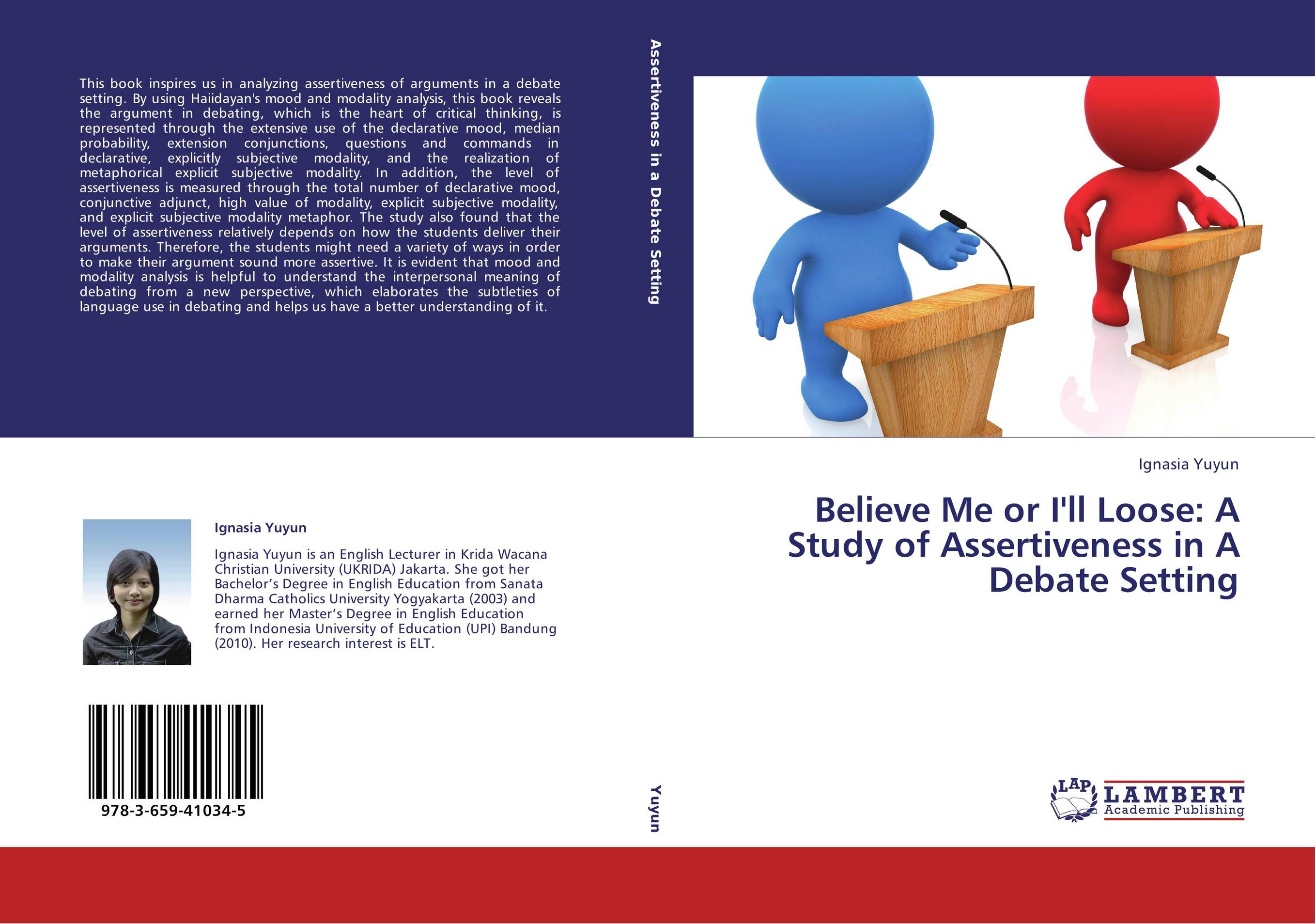| Поиск по каталогу |
|
(строгое соответствие)
|
- Профессиональная
- Научно-популярная
- Художественная
- Публицистика
- Детская
- Искусство
- Хобби, семья, дом
- Спорт
- Путеводители
- Блокноты, тетради, открытки
Believe Me or I'll Loose: A Study of Assertiveness in A Debate Setting.

В наличии
| Местонахождение: Алматы | Состояние экземпляра: новый |

Бумажная
версия
версия
Автор: Ignasia Yuyun
ISBN: 9783659410345
Год издания: 2013
Формат книги: 60×90/16 (145×215 мм)
Количество страниц: 296
Издательство: LAP LAMBERT Academic Publishing
Цена: 52403 тг
Положить в корзину
Позиции в рубрикаторе
Отрасли знаний:Код товара: 123275
| Способы доставки в город Алматы * комплектация (срок до отгрузки) не более 2 рабочих дней |
| Самовывоз из города Алматы (пункты самовывоза партнёра CDEK) |
| Курьерская доставка CDEK из города Москва |
| Доставка Почтой России из города Москва |
Аннотация: This book inspires us in analyzing assertiveness of arguments in a debate setting. By using Haiidayan's mood and modality analysis, this book reveals the argument in debating, which is the heart of critical thinking, is represented through the extensive use of the declarative mood, median probability, extension conjunctions, questions and commands in declarative, explicitly subjective modality, and the realization of metaphorical explicit subjective modality. In addition, the level of assertiveness is measured through the total number of declarative mood, conjunctive adjunct, high value of modality, explicit subjective modality, and explicit subjective modality metaphor. The study also found that the level of assertiveness relatively depends on how the students deliver their arguments. Therefore, the students might need a variety of ways in order to make their argument sound more assertive. It is evident that mood and modality analysis is helpful to understand the interpersonal meaning of debating from a new perspective, which elaborates the subtleties of language use in debating and helps us have a better understanding of it.
Ключевые слова: critical thinking, modality, mood, Systemic Functional Linguistics, Assertiveness, Debate, argument, Functional Grammar



